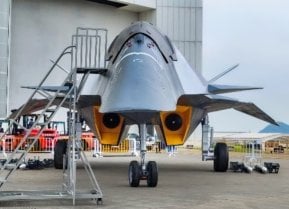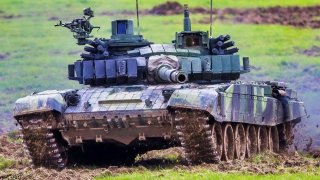North Korea Is the Only Winner in the Russia-Ukraine War
Russia’s invasion of Ukraine was a gift dropped in North Korea’s lap, but it has run with it. The opportunity to test North Korean weapons, and give North Korean troops some actual combat experience is no doubt welcomed by Kim Jong-un.
Since Russia’s full-scale invasion of Ukraine, North Korea has moved from vocal support of Russia and the invasion to shipping missiles and artillery shells to Russia to sending North Korean soldiers into combat with heavy artillery. Russia’s invasion of Ukraine was a gift dropped in North Korea’s lap, but it has run with it. The opportunity to test North Korean weapons, and give North Korean troops some actual combat experience is no doubt welcomed by Kim Jong-un, But their presence in Russia and potentially Ukraine has several implications that show that North Korea is in a better strategic position now than at any time since the Cold War.
Enforcement of United Nations sanctions against North Korea is well and truly over. Essentially everything North Korea is doing with Russia; weapons exports, any payment or aid from Russia for North Korea’s nuclear, missile, submarine, or drone programs, and deployment of North Korean soldiers to Russia, is a violation of United Nations sanctions. While the sanctions continue to exist on paper, they cannot change North Korea’s behavior or encourage it down more productive paths.
Chinese and Russian sanctions enforcement has been flagging since North Korea’s diplomatic offensive in 2018. Even as North Korea has become more sophisticated in its efforts, the strategies North Korea uses to evade sanctions have become less convoluted: North Korean ships now forthrightly spend months being repaired and disguised in Chinese shipyards, ship-to-ship transfers of sanctioned goods take place frequently within China’s Exclusive Economic Zone (EEZ), and ships sail directly from North Korea to Russian ports.
By forging a strategic partnership with Russia, now sealed in the blood of North Korean troops, North Korea is gaining a partner that has come to question not only sanctions but the basis for the Western-led non-proliferation regime itself. By contrast, while Chinese firms are arguably the primary abettors of North Korean sanctions evasion, China has never been particularly happy about North Korea’s nuclear weapons, even if it is unwilling to expend little political capital to get North Korea to give them up.
China has historically seen the value of dealing with North Korea’s nuclear issues in forums such as the UN Security Council where China has a seat, and has occasionally used border trade crackdowns in the name of sanctions enforcement to punish North Korea when it steps out of line.
And it is China that is North Korea’s main problem. The troops in Russia are not only about the Russia-Ukraine War or even improving North Korea’s relationship with Russia but about recalibrating North Korea’s relationship with China. China’s leverage over North Korea, always overstated in Western analysis, has slackened. North Korea’s own COVID-19 border closure caused a greater collapse in trade and cross-border movement than sanctions ever have, and despite North Korean citizens’ suffering, the North Korean state emerged convinced it could overcome being cut off from the outside world.
Despite the supposed lips and teeth relationships between China and North Korea, even as China has come to account for more than ninety percent of North Korea’s trade, North Korea’s foreign policy under Kim Jong-un has long had an objective of decreasing China’s strategic leverage over the country. North Korea’s nuclear weapons and missile programs, and its flirtations with Japan, South Korea, and the U.S. over the last decade can all be seen as attempts by North Korea to minimize the ability of China to coerce it.
In Russia, North Korea has a partner that will not hold its nuclear weapons against it, that will run interference at the United Nations, and that may even aid its weapons programs. Compared to the dribs and drabs of opportunistic weapons deals to which it has been forced to accede during the sanctions years, North Korea now finally has a consistent customer for its weapons exports and can expand its manufacturing capabilities accordingly.
Trade through Russia can now take place unhindered. Whatever else North Korea is getting from Russia in return, the strategic space the Russian partnership affords North Korea is a substantial benefit.

Finally, what North Korea is sending to Russia; missiles, artillery shells, and soldiers suggests that North Korea’s warfighting doctrine has fundamentally changed.
North Korea has been outgunned and outclassed by South Korea’s conventional forces for years and has little capability to sustain a major ground offensive through and past the Demilitarized Zone (DMZ) in the event of a resumption of hostilities. Its thousands of artillery tubes aimed at Seoul can wreak havoc for a short period but are generally immobile and vulnerable to counter-artillery fire.
As North Korea has realized this, there has been a shift in North Korea’s doctrine to develop non-conventional weapons fired from multiple platforms and with firing ranges sufficient to deter the United States and South Korea. The implication is that, while North Korea will certainly continue to place masses of troops on the DMZ with huge stockpiles of artillery shells, not all of them need to be there for North Korea to survive.
The game has fundamentally changed. It may be that the only winner of the Russia-Ukraine War is North Korea.
About the Author: Justin Hastings
Justin Hastings is Professor of International Relations and Comparative Politics at the University of Sydney, where he is also Regional Security Program Leader for the Centre of International Security Studies. He is the author of a number of books and journal articles, including A Most Enterprising Country: North Korea in the Global Economy (Cornell University Press, 2016).
Image Credit: Creative Commons and/or Shutterstock.


